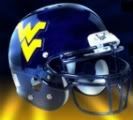Post by mountaineer501 on Jan 22, 2010 12:34:56 GMT -5
CONCORD, N.C. -- Have at it, boys.
NASCAR is relaxing some of its rules this season, and encouraging drivers to show more aggression and emotion, in large part to answer a growing fan sentiment that the sport had gone stale.
"There's an age old saying that NASCAR, 'If you ain't rubbing, you ain't racing,'" NASCAR president Mike Helton said Thursday. "I think that's what the NASCAR fan, the NASCAR stakeholders all bought into, and all expect."
The first change will be evident when the season opens next month at Daytona International Speedway, where restrictions on bump-drafting will be lifted and horsepower will be increased by the use of the largest restrictor plate since 1989.
NASCAR had been slowly tightening its tolerance on bumping at Daytona and Talladega -- the two biggest and fastest tracks in the series, where the horsepower-sapping restrictor plates are used to control speeds -- and it graduated into an outright ban issued the morning of the November race at Talladega. The edict sucked the drama out of what's typically one of the most exciting races of the year, and was the final straw for many race fans who had grown tired of watered-down racing.
Even some drivers publicly complained, criticism that is usually frowned upon in NASCAR.
"Let us RACE," Denny Hamlin tweeted after the Talladega drivers meeting, later adding, "We signed up to drive our cars. Not be told how to."
He's getting his wish.
"We will put it back in the hands of drivers, and we will say 'Boys, have at it and have a good time,'" vice president of competition Robin Pemberton said Thursday.
The yellow out-of-bounds line that circles the bottom of those two tracks will remain, and Pemberton said the majority of drivers did not want that removed.
Another change coming this year will be an eventual switch from the rear wing to a spoiler on the back of the car, a design change that should both positively affect downforce and the aesthetic look that race fans prefer.
Also on tap is an organizational restructuring. The most prominent shuffle is the promotion of longtime Sprint Cup Series director John Darby into an oversight position, and NASCAR is actively looking for his replacement in a role that is effectively the top cop of the garage.
Darby's successor could be in for a busy year, particularly if drivers answer NASCAR chairman Brian France's call "to mix it up a little bit differently" going forward.
As NASCAR exploded over the 1990s past its small Southern roots into a billion-dollar, corporate-fueled sport, its participants seemed to morph into robotic sponsor shills too frightened to make waves. NASCAR wasn't immune, either, and started policing on-track aggression and off-track emotion.
Intentional on-track retaliation was met with immediate punishment, while transgressions such as shoving a competitor or cursing in a television interview were met with monetary fines and/or points deductions.
Fans were incensed that the rough and tumble sport they once loved had been molded into boring, follow-the-leader racing, and their favorite drivers had become too vanilla. It wasn't until last fall -- when Hamlin waged a monthslong feud with up-and-comer Brad Keselowski, and Tony Stewart and Juan Pablo Montoya intentionally wrecked each other in the season finale -- that NASCAR finally saw the lift the emotions and personalities can deliver to the sport.
So France, who in the past has been accused of being out of touch with stock car racing's participants, began a series of offseason meetings with individual teams and drivers to poll opinion on how to re-energize the sport.
All the changes announced Thursday, as well as the promise by France that NASCAR will "loosen it up," came from those meetings.
Still, Helton cautioned it won't be the Wild West.
"It doesn't mean that you get a free pass-out-of-jail card," he said. "But it certainly means that what we are encouraging the competitors ... for their character and their personality, within reason, to be unfolded."
NASCAR is relaxing some of its rules this season, and encouraging drivers to show more aggression and emotion, in large part to answer a growing fan sentiment that the sport had gone stale.
"There's an age old saying that NASCAR, 'If you ain't rubbing, you ain't racing,'" NASCAR president Mike Helton said Thursday. "I think that's what the NASCAR fan, the NASCAR stakeholders all bought into, and all expect."
The first change will be evident when the season opens next month at Daytona International Speedway, where restrictions on bump-drafting will be lifted and horsepower will be increased by the use of the largest restrictor plate since 1989.
NASCAR had been slowly tightening its tolerance on bumping at Daytona and Talladega -- the two biggest and fastest tracks in the series, where the horsepower-sapping restrictor plates are used to control speeds -- and it graduated into an outright ban issued the morning of the November race at Talladega. The edict sucked the drama out of what's typically one of the most exciting races of the year, and was the final straw for many race fans who had grown tired of watered-down racing.
Even some drivers publicly complained, criticism that is usually frowned upon in NASCAR.
"Let us RACE," Denny Hamlin tweeted after the Talladega drivers meeting, later adding, "We signed up to drive our cars. Not be told how to."
He's getting his wish.
"We will put it back in the hands of drivers, and we will say 'Boys, have at it and have a good time,'" vice president of competition Robin Pemberton said Thursday.
The yellow out-of-bounds line that circles the bottom of those two tracks will remain, and Pemberton said the majority of drivers did not want that removed.
Another change coming this year will be an eventual switch from the rear wing to a spoiler on the back of the car, a design change that should both positively affect downforce and the aesthetic look that race fans prefer.
Also on tap is an organizational restructuring. The most prominent shuffle is the promotion of longtime Sprint Cup Series director John Darby into an oversight position, and NASCAR is actively looking for his replacement in a role that is effectively the top cop of the garage.
Darby's successor could be in for a busy year, particularly if drivers answer NASCAR chairman Brian France's call "to mix it up a little bit differently" going forward.
As NASCAR exploded over the 1990s past its small Southern roots into a billion-dollar, corporate-fueled sport, its participants seemed to morph into robotic sponsor shills too frightened to make waves. NASCAR wasn't immune, either, and started policing on-track aggression and off-track emotion.
Intentional on-track retaliation was met with immediate punishment, while transgressions such as shoving a competitor or cursing in a television interview were met with monetary fines and/or points deductions.
Fans were incensed that the rough and tumble sport they once loved had been molded into boring, follow-the-leader racing, and their favorite drivers had become too vanilla. It wasn't until last fall -- when Hamlin waged a monthslong feud with up-and-comer Brad Keselowski, and Tony Stewart and Juan Pablo Montoya intentionally wrecked each other in the season finale -- that NASCAR finally saw the lift the emotions and personalities can deliver to the sport.
So France, who in the past has been accused of being out of touch with stock car racing's participants, began a series of offseason meetings with individual teams and drivers to poll opinion on how to re-energize the sport.
All the changes announced Thursday, as well as the promise by France that NASCAR will "loosen it up," came from those meetings.
Still, Helton cautioned it won't be the Wild West.
"It doesn't mean that you get a free pass-out-of-jail card," he said. "But it certainly means that what we are encouraging the competitors ... for their character and their personality, within reason, to be unfolded."







